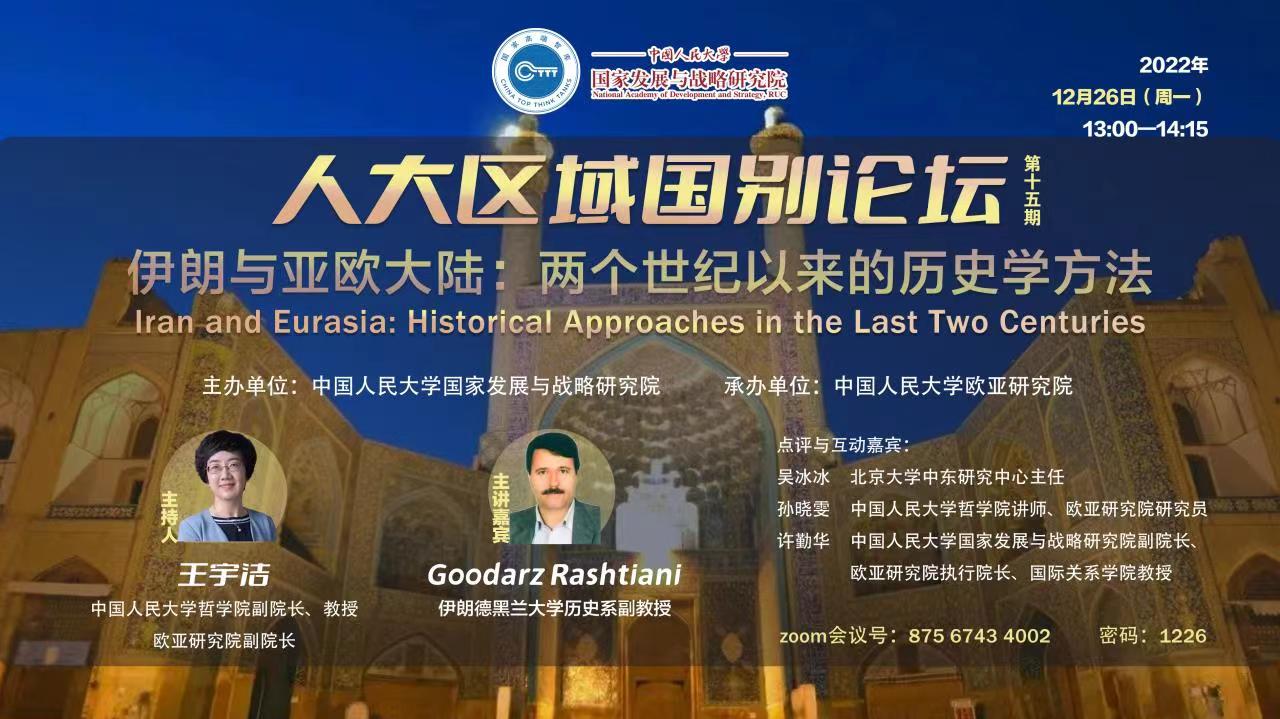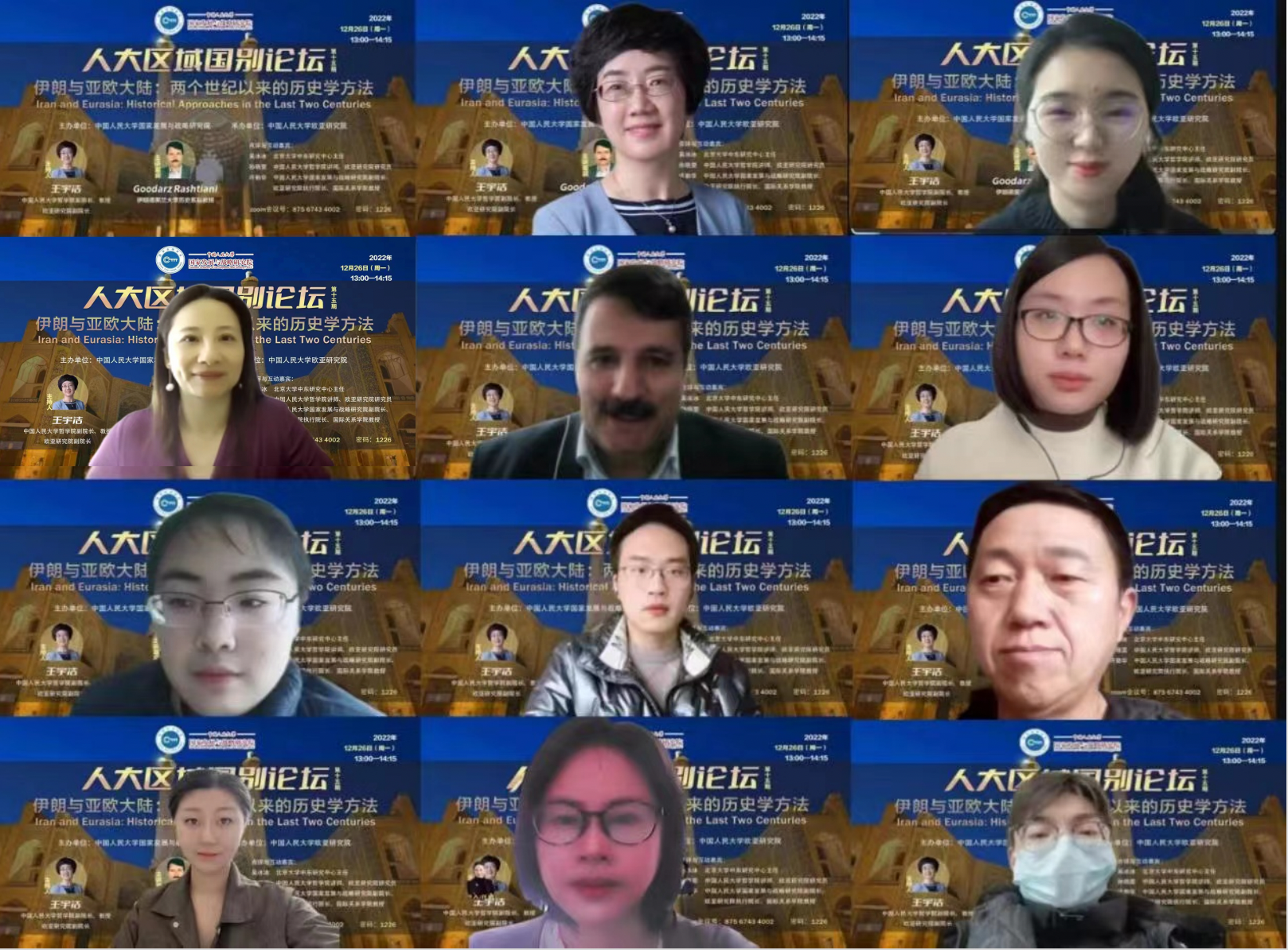 Research Update
Research Update
03
Jan
On 26 December 2022, the 15th Session of RUC Area Studies Forum: Iran and Eurasia: "Historical Approaches in the Last Two centuries" was successfully held. It was hosted by the National Academy of Development and Strategy (NADS) of the RUC, undertaken by the Eurasian Research Institute of the RUC on ZOOM Webnaire from 13:00 to 14:15 in both English and Chinese.

Goodarz Rashtiani, Associate professor of the University of Tehran's History Department and Doctor of the University of Tehran, is specially invited as the keynote speaker. The purpose of this lecture is to grasp the historical status of Iran in Eurasia and the evolution of its external relations by introducing the historical exchanges between Iran and Russia, Central Asia, and the Caucasus. And explore the rich connotations of the two academic concepts of "Eurasia" and "Eurasia". Dr. Goodarz Rashtiani first focuses on the geographical region of "Central Eurasia", which includes the current five Central Asian states, the North Caucasus, and parts of the South Caucasus. This region has had close political and cultural interactions with Iran since ancient times. Then, taking the historical development of ancient Iran as the main line, he sorted out the political and cultural relations between Iran, as a political civilization unit, and the central region of Eurasia in such historical stages as the Achaemenid Dynasty, Sassanid Dynasty, Arab Conquest period, Mongol Conquest period, Timurid Empire, Safi Dynasty and Afshar Dynasty. And how Persian culture spread throughout the region. Finally, Dr. Goodarz Rashtiani analyzed the changes in the political and cultural relations between Iran and the central Eurasian continent in the past two centuries and proposed that the Tsarist Russian expansion in the Caucasus and Central Asia weakened Iran's influence in the region, especially as the status of Persian was replaced by Russian. But the process of Russification in Central Asia and the Caucasus has also promoted local economic development and industrialization and influenced Iran's political and social transformation. As the Soviet Union moved from its founding to its collapse, new opportunities opened up for Iran's relations with central Eurasia. At present, Iran is playing a positive role in resolving regional affairs such as conflicts in Kyrgyzstan and Nagorno-Karabakh, and has become an important balancing force in the central region of Eurasia.